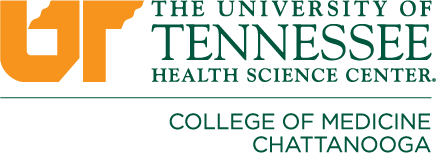GME Accreditation - Chattanooga
The ACGME employs best practices, research, and advancements across the continuum of medical education to demonstrate its dedication to enhancing health care and graduate medical education. The ACGME is committed to improving the patient care delivered by resident and fellow physicians today, and in their future independent practice, and to doing so in clinical learning environments characterized by excellence in care, safety, and professionalism. The ACGME sets standards for effective training programs, and monitors compliance with those standards (the Institutional and Program Requirements).
- Specialty-specific committees (Review Committees) of volunteer physicians including a resident/fellow representative, as well as a non-physician public member create a uniform set of high standards for each accredited specialty and subspecialty applied across all accredited US residency and fellowship programs educating and training physicians in those fields to ensure the highest quality physicians and patient care.
- Accredited residency and fellowship programs are continuously monitored for substantial compliance with the requirements set by the applicable Review Committee, including through data collection and evaluation, surveys, and site visits.
- The Review Committees regularly review the accreditation requirements to ensure they are based on current and best practices in the field.
- The ACGME sets standards designed to cultivate a team-based learning environment and culture in which residents and fellows serve as both learners and mentors in delivering high-quality patient-focused care.
- Residents and fellows provide regular feedback to the ACGME about their programs, offering an inside view that helps the organization to improve the overall quality of accredited programs.
Requirements are set, and compliance with those requirements is assessed, by specialty-specific Review Committees made up of volunteer physician experts in the field, including residents/fellows, as well as public representatives. The Institutional Review Committee reviews and accredits institutions that sponsor graduate medical education programs. Each Review Committee receives data on all accredited or applicant programs or institutions within its purview, and makes an accreditation status decision on each, annually.
The American Board of Medical Specialties
American Hospital Association
American Medical Association
American Association of Medical Colleges
Council of Medical Specialty Societies
The UT Health Science Center College of Medicine-Chattanooga is a sponsoring institution for ACGME-accredited GME training programs and in continued accreditation status without any citations (as of January 13, 2025).
ACGME Mission: To improve the quality of healthcare in the U.S. by assessing and advancing the quality of graduate medical education for physicians in training through accreditation
ACGME Quick Facts
- Accredits more than 13,066 residency and fellowship programs
- Sponsors programs in 182 specialties and subspecialties in the United States
- Responsible for 158,079 residents and fellows
- Reviews and accredits approximately 886 sponsoring institutions
- One in seven active physicians in the U.S. are residents or fellows in ACGME-accredited programs
- Formed in 1981 through a consensus need in the medical community for an independent accrediting organization for residency programs
- Member organizations of the ACGME nominate members to the ACGME Board of Director's, including: two resident representatives, the Chair of the Council of Review Committees, three public members and a federal government representative.
Residency and fellowship programs provide the clinical experience and education for residents to:
- Gradually and progressively achieve the autonomy and independence to deliver the highest quality patient care without supervision.
- Make the right decisions and take life-saving actions after undergoing a rigorous and demanding training program.
- Learn how to cope with the challenges of practicing medicine.
Accreditation for GME is voluntary. However, residency programs must be ACGME-accredited to receive Medicare graduate medical education funds, and residents must complete an ACGME-accredited residency program to be eligible to take board certification exams.
The ACGME’s next accreditation system for graduate medical education (GME) was fully implemented in 2014. Now, under the new system, each accredited medical residency program must demonstrate that its residents have the core competencies and clinical skills to deliver quality patient care and respond to rapid developments in health care delivery.
“Equipping the doctors of tomorrow with the clinical skills and perspectives needed to promote patient safety and quality and to respond to the rapid developments in healthcare delivery are the ACGME’s prime objectives in implementing a ‘next accreditation system’ for graduate medical education in the U.S,” said Thomas Nasca, MD, MACP, Chief Executive Officer of the ACGME. “There is now widespread consensus that moving to an outcomes-based accreditation system will prepare physicians to deliver quality patient care and be skilled in evidence-based medicine, team-based care, care coordination, and shared decision-making – all critical to practicing medicine in an increasing complex health care system.”
The ACGME’s next accreditation system is consistent with recommendations made by the Institute of Medicine (IOM) and such respected bodies as the Medicare Payment Advisory Commission (MedPAC) and the Josiah Macy Jr. Foundation. Under the ACGME’s next accreditation system: residents and fellows must demonstrate competency in six core areas -- patient care and procedural skills, medical knowledge, practice-based learning and improvement, interpersonal skills and communication, systems-based practice, and professionalism.



